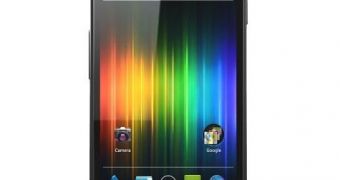Apple has filed another ITC complaint against South Korean mobile phone Samsung, this time in the United States, in an attempt to ban sales of a series of mobile phones in the country.
Among them we can count the Samsung Galaxy Nexus, a handset that was launched in the United States in November last year, and which hit the shelves in the country in December via Verizon Wireless.
Although Google and Samsung assured everybody that Galaxy Nexus was designed so as to be “Apple-proof,” the Cupertino-based company has found 4 patents that the latest Google phone out there is allegedly infringing.
Apple is seeking a preliminary injunction against the Samsung Galaxy Nexus, the first smartphone in the world to arrive on shelves with Google’s Android 4.0 Ice Cream Sandwich operating system.
On Thursday, Apple also filed a new lawsuit against Samsung with the United States District Court for the Northern District of California.
The filing mentions a number of 18 Samsung products, Galaxy S II Skyrocket and Galaxy S II Epic 4G Touch smartphones included.
The four patents that Apple claims that Galaxy Nexus is infringing include:
U.S. Patent No. 8,074,172 – “Method, System, and Graphical User Interface for Providing Word Recommendations” U.S. Patent No. 5,946,647 – “System and Method for Performing an Action on a Structure in Computer-Generated Data” U.S. Patent No. 8,046,721 – “Unlocking a Device by Performing Gestures on an Unlock Image” U.S. Patent No. 8,086,604 – “Universal Interface for Retrieval of Information in a Computer System”
While the three patents starting with “8” were granted lately (the eight millionth U.S. patent was issued in September 2011), the 5,946,647 patent is older. It is the same “data tapping” patent that determined HTC to make changes to its devices.
The feud between Apple and Samsung is not new. However, while it previously claimed that Samsung’s devices “resemble” too much its own, Apple decided to take a new route with the new lawsuit against the handset vendor, bringing to the table more heavyweight patents.

 14 DAY TRIAL //
14 DAY TRIAL //